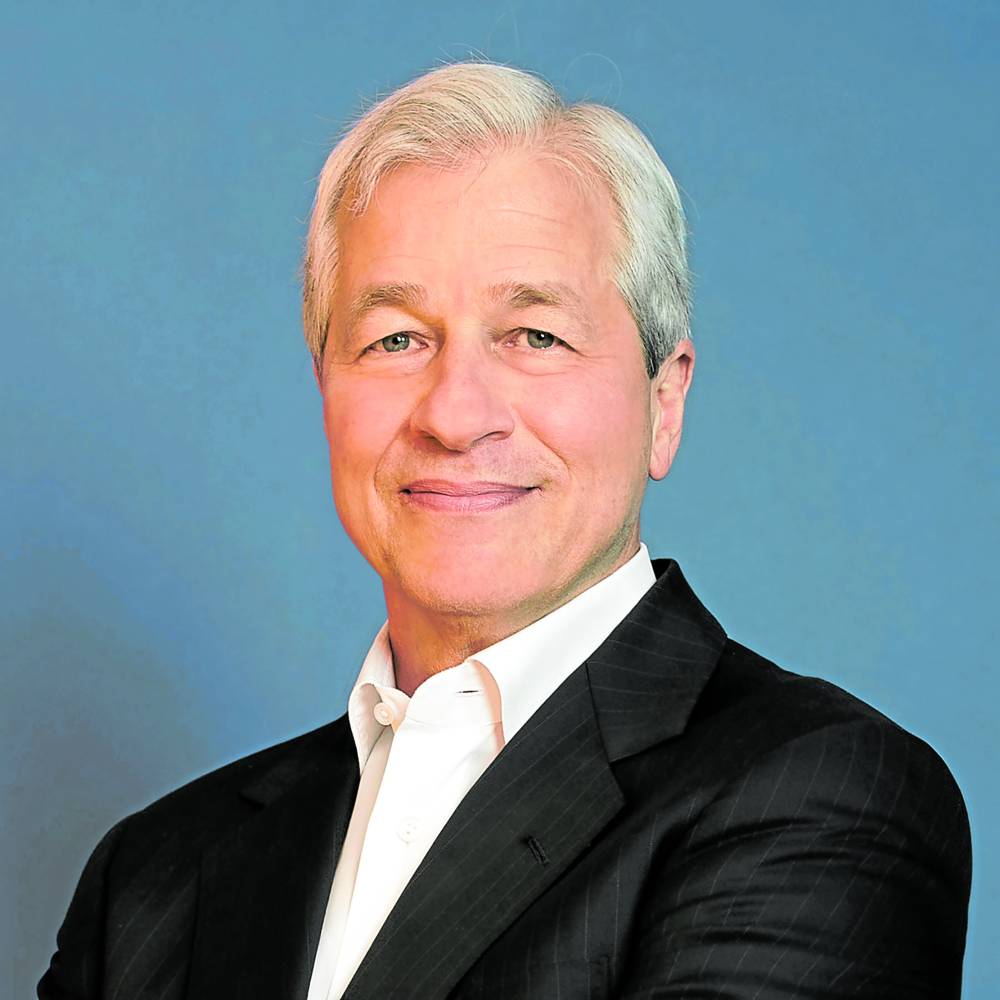
American banker and businessman Jamie Dimon —Contributed photo
Legendary banker Jamie Dimon, who has led JP Morgan Chase to become a global banking powerhouse, sees an opportunity to grow the latter’s banking footprint in the Philippines alongside the further expansion of its business process management operations, already the largest captive player in this country.
The longtime JP Morgan CEO—who is briefly in town for a private audience with top local clients and business leaders on Wednesday—said in an email interview with the Inquirer that in the last 19 years, the banking group has grown its corporate center in the Philippines to more than 20,000 employees who now provide critical business operations support for every division of the bank globally.
“The Philippines is one of our largest locations outside the United States by number of employees, thanks to its deep talent pool,” Dimon said.
When JP Morgan established its corporate centers in India, the Philippines and other countries, he said the long-term plan was indeed to evolve from traditional information technology support and call centers to core operational functions and high-value tasks.
65 years
“We consolidated several of our Manila-based employee groups into one facility, JPMorganChase Tower,” he said, referring to the group’s new head office at Uptown Bonifacio Taguig that started operating in 2022.
“And recognizing further growth opportunities, we will launch an adjacent facility at the International Finance Center next year. This state-of-the-art, world-class office will accommodate over 8,000 seats, bringing together the rest of our Manila-based colleagues currently in other legacy offices,” he added.
JP Morgan has been operating its banking franchise in the Philippines since 1961.
“As we celebrate 65 years of doing business here next year, we aim to continue improving our market share across our commercial, corporate, and investment banking products,” he said.
16 markets
Across Asia-Pacific (APAC), JP Morgan has been operating since 1872 and is now active in 16 markets across the region, supporting multinational clients with operations in the fast-growing region as well as regional clients with increasing global requirements.
“We are great believers in the future of Asia Pacific. We have an extensive geographic and product footprint throughout the region, which is backed by a fortress balance sheet, strong relationships and local expertise—all of which position us well as we grow and expand in this very dynamic part of the world,” he said.
There are several opportunities that JP Morgan would like to seize in the region over the next several years, Dimon said.
“The pension funds industry is enormous, and we plan to invest there. With APAC already home to four in 10 global billionaires, and their wealth growing faster than in the US and EMEA (Europe, Middle East and Africa), we see significant opportunities for our asset and wealth management businesses,” he said.
For Southeast Asia, Dimon said JP Morgan was expecting the combined gross domestic product of the 10-member bloc to quadruple over the next two decades, coming from a base of $3.3 trillion as of 2021.
“We intend to capitalize on this positive momentum across our key divisions,” he said.
Globally, Dimon expects JP Morgan’s key businesses—investment banking, consumer banking, financial transaction processing and asset management—to remain formidable in the years ahead.
“We have built these businesses to be leaders for the long-term, though we never get complacent,” he said.
For the second quarter of 2024, JP Morgan raked in an $18.1-billion net income out of $50.2 billion revenues, respectively rising by 25 percent and 22 percent year-on-year.